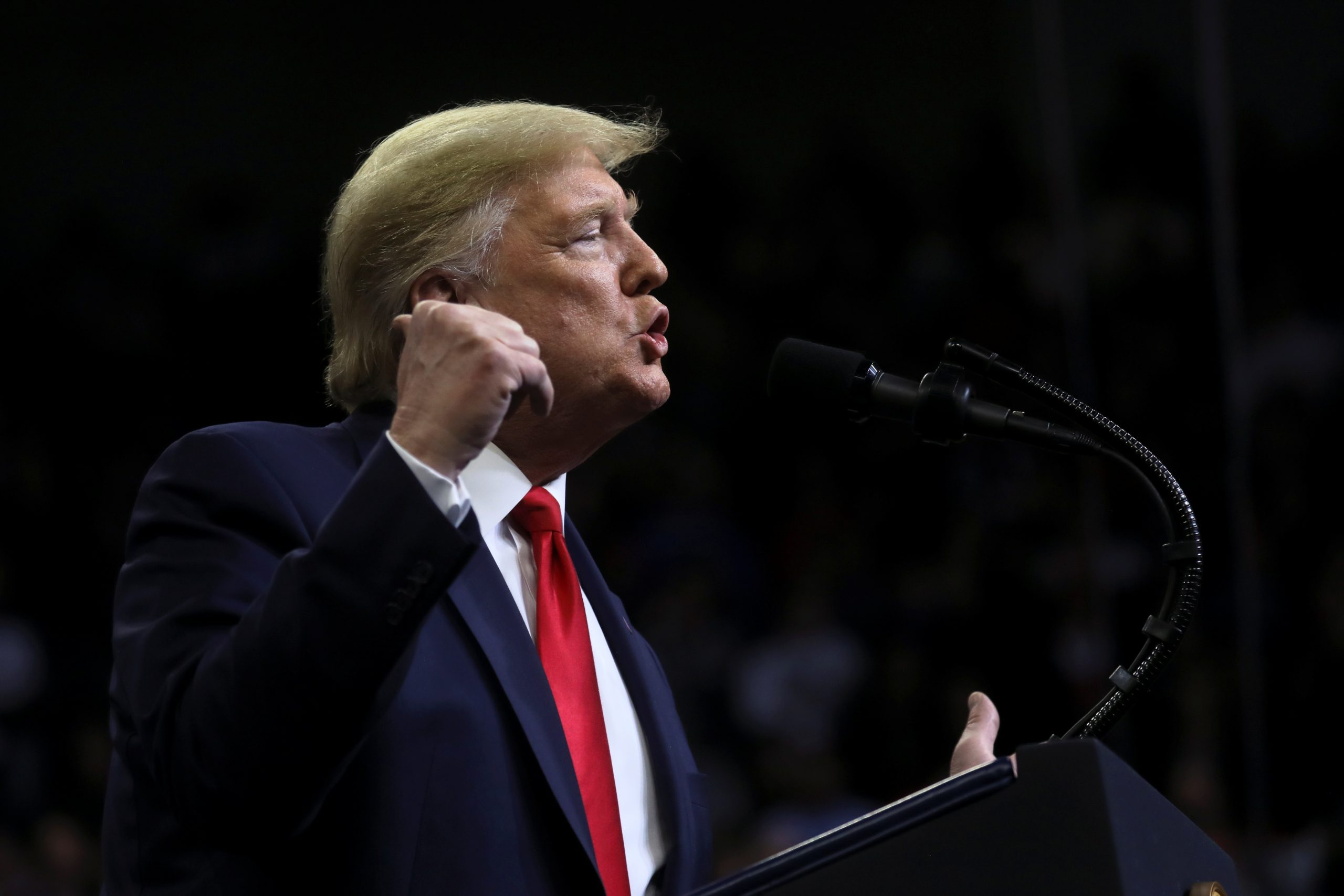In a speech last month to farmers in Texas, President Donald Trump won applause as he talked up recent U.S. trade agreements. When he tried to boast of his administration’s ethanol policy, however, he was met with silence.
Iowa swung sharply to Trump’s Republicans in the 2016 presidential election, but Democrats hope anger over a relaxation of rules mandating use of ethanol by U.S. refineries could put the corn-producing state in the win column this year.
“I think they haven’t solved the farmers’ problems in terms of ensuring farmers will have a consistent market for the ethanol that they produce,” said Wayne Moyer, a political science professor at Grinnell College in Grinnell, Iowa. “It’s a sore spot.”
Federal rules require refineries to blend 15 billion gallons of conventional biofuels like ethanol, which is made primarily from corn, into the nation’s fuel pool every year. Refiners have long sought waivers exempting them from these rules, while corn growers argue they are crucial to sustain ethanol demand.
Over the past two years, the U.S. Environmental Protection Agency (EPA) has granted more than 30 waivers to refineries, including facilities owned by Exxon Mobil and Chevron Corp, stoking the ire of farmers and spurring numerous meetings in which the White House has tried to placate growers’ anger.
In addition, farmers bore the brunt of the retaliatory tariffs on soybeans and other products imposed by China during an 18-month trade war with the United States. As the world’s second-largest economy stopped buying U.S. agricultural goods, American farmers had to adapt to a smaller export market.
While many farmers were willing to make that sacrifice to target what they saw as China’s uncompetitive behavior, they were less obliging when it came to giving up demand for their products in what they saw as a concession to the oil industry.
“If we saw some other wrong turn by the EPA … then I think we’re going to have to take a hard look at the political situation,” said Mark Marquis, chief executive officer of Illinois-based ethanol producer Marquis Energy.
Iowa sells more corn and produces more ethanol than any other U.S. state, according to federal data. Ethanol supports about 40,000 jobs in Iowa, according to the Iowa Renewable Fuels Association.
Some Democrats, including former Vice President Joe Biden, and Pete Buttigieg, the former mayor of South Bend, Indiana, have highlighted the issue heading into the Iowa nominating contest on Monday, the first leg in the race to determine who will face Trump in the Nov. 3 election.
“President Trump has lied to Iowa farmers at every turn. He promised to ‘unleash ethanol’ but instead all he’s done is secretly unleash Big Oil from its renewable fuel obligations,” Biden tweeted in August.
Iowa could be crucial in this year’s presidential election. In the 2018 mid-term elections, two Republicans lost their re-election bids to the U.S. House of Representatives, giving Democrats a majority of the four congressional districts.
“The president is going to be challenged by farmers over the next nine months on whether or not he’s ethanol-friendly,” U.S. Senator Chuck Grassley, a Republican from Iowa who advocates for use of biofuels, said in a call with reporters in January.
(GRAPHIC: Iowa’s ethanol, corn production https://tmsnrt.rs/2sR4j9k)
‘HIT AT THE KNEECAPS’
In August, the EPA granted 31 refinery exemptions, sparking outrage from the biofuels industry. There have been around 20 ethanol plant shutdowns since November 2018, equal to about 1.2 billion gallons of annual capacity, though some have reopened. The oil industry says the waivers do not destroy ethanol demand.
U.S. Representative Abby Finkenauer, a first-term Democrat from Iowa who defeated a Republican incumbent in 2018, has endorsed Biden’s presidential campaign, saying he understands the industry’s importance in the state and would stabilize renewable fuel policies.
“What we have seen specifically from Trump and his administration has been going back on words after hands have been shook,” she said.
“The tariffs affected the beans and the ethanol has affected the corn. We’re getting hit at the kneecaps,” said Trent Hatlen, who farms 1,000 acres of corn and soybeans in Rembrandt, Iowa. He said he is likely to support Biden on Monday.
The White House, in a statement, touted its promotion of American ethanol, including the approval of E15, a higher-ethanol blend of gasoline, for year-round use, which had been previously prohibited.
The signing of trade agreements, particularly the Phase 1 deal between the United States and China and the United States-Mexico-Canada Agreement, has boosted Trump’s standing among farmers.
Among those polled in late December who said they or an immediate family member were working in agriculture, 49% approved of the way Trump is handling U.S. farming, up from 43% in September, while 40% disapproved, a Reuters/Ipsos poll showed.
That support may withstand Democrats’ efforts to target Iowa.
“There’s still plenty of time to see what the world looks like between now and November,” said Nick Bowdish, the CEO of Elite Octane near Atlantic, Iowa, and Siouxland Ethanol near Jackson, Nebraska.
(Reporting by Stephanie Kelly in New York; Additional reporting by Trevor Hunnicutt in Storm Lake, Iowa, and Tom Polansek in Chicago; Editing by Paul Simao)

























 Continue with Google
Continue with Google